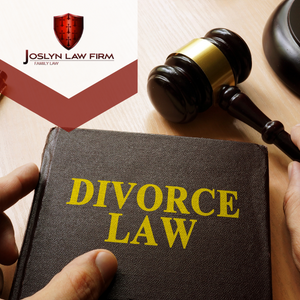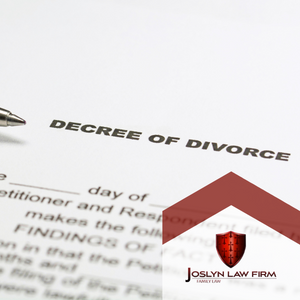Top-Rated Fairfield County, Ohio Divorce Lawyer Near You

They might be giving you advice and sharing their personal experiences, which may or may not be helpful. It is true that divorce is often considered one of the most challenging experiences in life.
Even lower-conflict divorces can cause stress and worries about the future. However, you have more control over your divorce than you might think you do.
A qualified divorce lawyer can explain the procedure, alert you to your rights and options provided under Ohio law, and help you form a plan for your future.
If you are currently going through or contemplating divorce, we encourage you to speak with one of our experienced divorce attorneys near you in Fairfield County, Ohio. Call our office today at (614) 420-2424 to schedule your free consultation or contact us online.
Information Center
- Hiring a Divorce Lawyer in Fairfield County, Ohio
- What Can Family Law and Divorce Lawyers Do for Their Clients?
- Residency Requirements for Divorce in Fairfield County, OH
- Court Hearings and COVID-19 Precautions
- Schedule Your Free Consultation With a Fairfield County Divorce Attorney Near You
Hiring a Divorce Lawyer in Fairfield County, Ohio
The state of Ohio has 88 counties, all of which have unique court rules and procedures. If your divorce is to occur in Fairfield County, it is essential that you hire an attorney with prior experience in that county.
The attorneys at Joslyn Law Firm have represented many clients in Fairfield County in divorce and other family law matters. Led by managing attorney Brian Joslyn, the entire legal team has led clients through the particulars of the Fairfield County divorce process.
Clients come to our office to start their divorces and to address concerns after their divorces are complete.
No matter where you are on this spectrum, our award-winning team is prepared to help you address:
- Property and debt distribution;
- Spousal support;
- Child custody;
- Parenting time;
- Child support;
- Temporary and emergency concerns; and
- Post-divorce disputes.
Not only will our attorneys provide you with first-rate legal counsel, but you will also be given the emotional support you need from the very beginning.
When you walk in the door at Joslyn Law Firm, you will be greeted by our Operations and Account Manager, Angie Joslyn. In addition to her role as a business and life partner to Brian Joslyn, Angie facilitates relationships between clients and their attorneys, provides support to clients, and listens to each client’s unique story.
As the “go-to” person in our office, Angie provides a service to clients that is not often found in other law firms.
When you are paired with one of our family law and divorce lawyers, know that you are not working with just any lawyer. Based in Columbus, Ohio, the attorneys at Joslyn Law Firm are well-known in the local legal community and surrounding counties.
Also known for its client satisfaction, the attorneys provide the finest representation skills in the area.
Recognized by both Rue Ratings and The National Trial Lawyers for his advocacy skills, Brian Joslyn has led his team into becoming one of the top family and divorce law firms in the area.
To schedule a consultation with one of our first-rate attorneys, please call our office at (614) 420-2424 or contact us online.
What Can Family Law and Divorce Lawyers Do for Their Clients?
The legal counsel you receive should be just as unique as your personal story. Clients visit our office with all types of requests.
Some clients seek a divorce that can be partially or completely resolved by mediation. Other clients’ cases require extensive courtroom litigation, including motions for temporary relief and petitions for emergency relief.
Joslyn Law Firm also helps clients who are already divorced. These clients request court intervention to modify their divorce decrees or to enforce them as written.
If you have a concern about your divorce and are unsure where to begin, Joslyn Law Firm family law attorneys have the skill and experience you need to address your case from start to finish.
Emergency And Temporary Relief
Requests for emergency and temporary relief can have significant overlap, but they can also serve separate and unique purposes. They are often used during a lengthy and high-conflict divorce, but they can also be utilized after a divorce.
They both temporarily change an aspect of the divorce for one party or limit or prohibit contact between spouses.
Emergency petitions for relief, often called “ex parte” relief, can be appropriate when a spouse needs immediate help to prevent domestic violence to themselves or children or to briefly suspend the other parent’s parenting time.
“Ex parte” is a fancy way of saying “for one party.” When judicial officers review these petitions, they do so without a hearing and without the input of the other spouse, also called the “respondent.”

Proof could include acts of domestic violence that have already occurred or the other spouse’s threats of immediate physical violence.
If the court grants the petition, the petitioner receives court protection for a very brief amount of time, usually no more than 14 days.
Then the judicial officer will hold a hearing where both spouses can present evidence and explain their sides of the story. After the hearing, the judicial officer will grant or deny the petition.
If granted, the relief requested will last a longer amount of time. Whether you are the petitioner or respondent, a petition for emergency relief should be taken seriously. A petition that is granted can have long-term impacts on both parties during and after the divorce.
To ensure that your side is properly represented, you need to work with a qualified family law attorney.
Temporary requests for relief typically require a motion and supporting documents that explain why temporary relief is needed. Like emergency orders, temporary orders either prevent one spouse’s behavior or change something before the divorce decree is issued.
These motions usually address issues directly related to the overarching divorce proceeding, including:
- Custody and parenting time;
- Child support;
- Use of marital property; and
- Restraints to sell marital property.
Consider the following example: Perhaps your divorce includes unique pieces of personal property, such as artwork, and you and your spouse dispute whether the art is marital or separate property.
Suppose your spouse attempted to sell the artwork without your knowledge and consent.
To restrain your spouse from selling the art, you might file a motion with the court and request that the property in dispute not be sold.
Temporary orders can also provide spouses temporary custody and parenting time agreements until their final divorce decree is issued.
Post-Decree Disputes
Ideally, spouses can go their separate ways once the divorce decree is issued. Higher-conflict cases, particularly those with children, can lead to many disputes after the divorce.
These disputes can be over:
- Spousal support payments (alimony);
- Child support payments;
- Custody;
- Parenting time; and
- Specific issues related to marital property.
Post-decree disputes arise when either or both spouses are not complying with the divorce decree or when one of them wants to modify the decree.
Perhaps your ex-spouse is not following the parenting time schedule or is preventing you from participating in major life decisions for your child. Another common example includes one spouse’s non-compliance with child support payments.
In either situation, you can file a motion and request that the court enforce the divorce decree as it’s written. The spouse who is alleged to be in violation of the divorce decree has an opportunity to explain their side of the story.
Post-decree motions are also common for spousal and child support payments.
The spouse paying child or spousal support might believe that the payment schedule or amounts should be modified. In response, the spouse receiving payments can present arguments why the payment schedule or amounts should remain the same.
Filing a motion and defending against a motion both require a solid understanding of state laws and experience in post-decree disputes.
If you are divorced and wish to file a motion or need to defend against a motion, please call our office at (614) 420-2424 or contact us online.
Residency Requirements for Divorce in Fairfield County, OH
One of the first questions any family law attorney will ask is whether you are a resident of Ohio.
For many people seeking a divorce, residency is not an issue and requires no further analysis. Ohio law’s residency requirements state that the petitioner, or the person filing for divorce, must have lived in Ohio for six months or more before filing the petition with the court.
If this foundational requirement is not met, the filing spouse cannot file for divorce in Ohio until at least six months have passed. To file specifically in Fairfield County, the petitioner must be a resident of any township inside the county.
Although the petitioning spouse is required to follow the residency requirements, the other spouse, or respondent, does not need to be a resident of Fairfield County or the state of Ohio. However, the respondent-spouse may be required to travel to Fairfield County for hearings and conferences.
If a spouse files in the wrong state or county, the divorce is likely to be delayed and can be subject to more filing fees. To avoid these issues and ensure you are in the right place, a divorce attorney can file a divorce petition and related documents on your behalf.
Court Hearings and COVID-19 Precautions
Fairfield County divorce proceedings are heard at the Court of Common Pleas, located at:
224 E. Main St.
Lancaster, OH 43130
Domestic relations disputes, including divorce, custody, parenting time, and child support, are heard in the Domestic Relations Division of the Court of Common Pleas.
Like other counties, Fairfield County has its own policies and procedures regarding the COVID-19 pandemic.
As of October 12, 2021, the Domestic Relations Division has resumed in-person hearings.
Because COVID-19 policies are subject to change, contact the court in advance of your hearing or discuss with your attorney the specific location of your hearing.
For the most up-to-date information about Fairfield County’s COVID-19 policies, please visit their website.
Schedule Your Free Consultation with Fairfield County Divorce Attorneys at Joslyn Law Firm
Your divorce might be difficult, but you can feel more empowered about the outcome of your divorce with the assistance of an exceptional legal team.
To prepare for your divorce and create the best outcome for your case, contact a family law lawyer at Joslyn Law Firm at (614) 420-2424 or contact us online.
Reviews of Our Fairfield County Divorce Attorneys
Read this 5-star Google review below regarding a complex child custody case in Columbus OH
“I have a complex custody case, and had no idea where to start. I started researching family law attorneys in Columbus and found Joslyn Law Firm. I spoke with Ashley Dollins and after listening to my entire story she gave me very good advice on what I need to do. She was so kind and patient and I am very grateful she is the first person I spoke with regarding getting to see my daughter again. It is clear she is very knowledgeable regarding family law cases, especially a highly complicated case as mine.”
By: Matthew Neiman
Rating: 5/5 ⭐⭐⭐⭐⭐
September 22, 2021
Read more reviews on Google!
This page was last updated by Brian Joslyn

